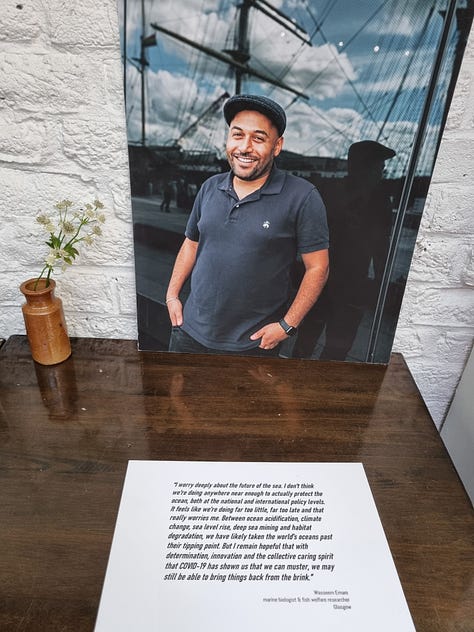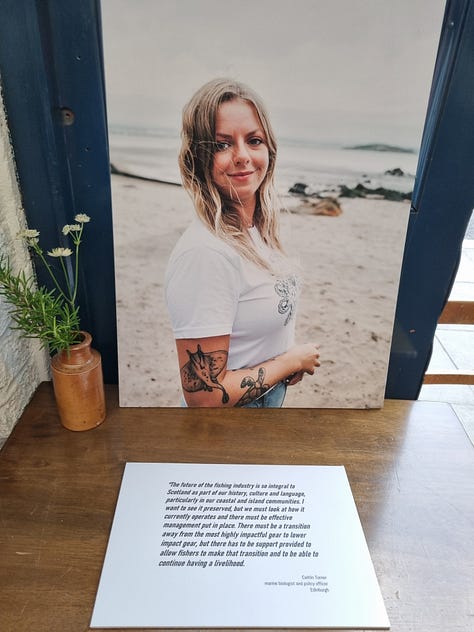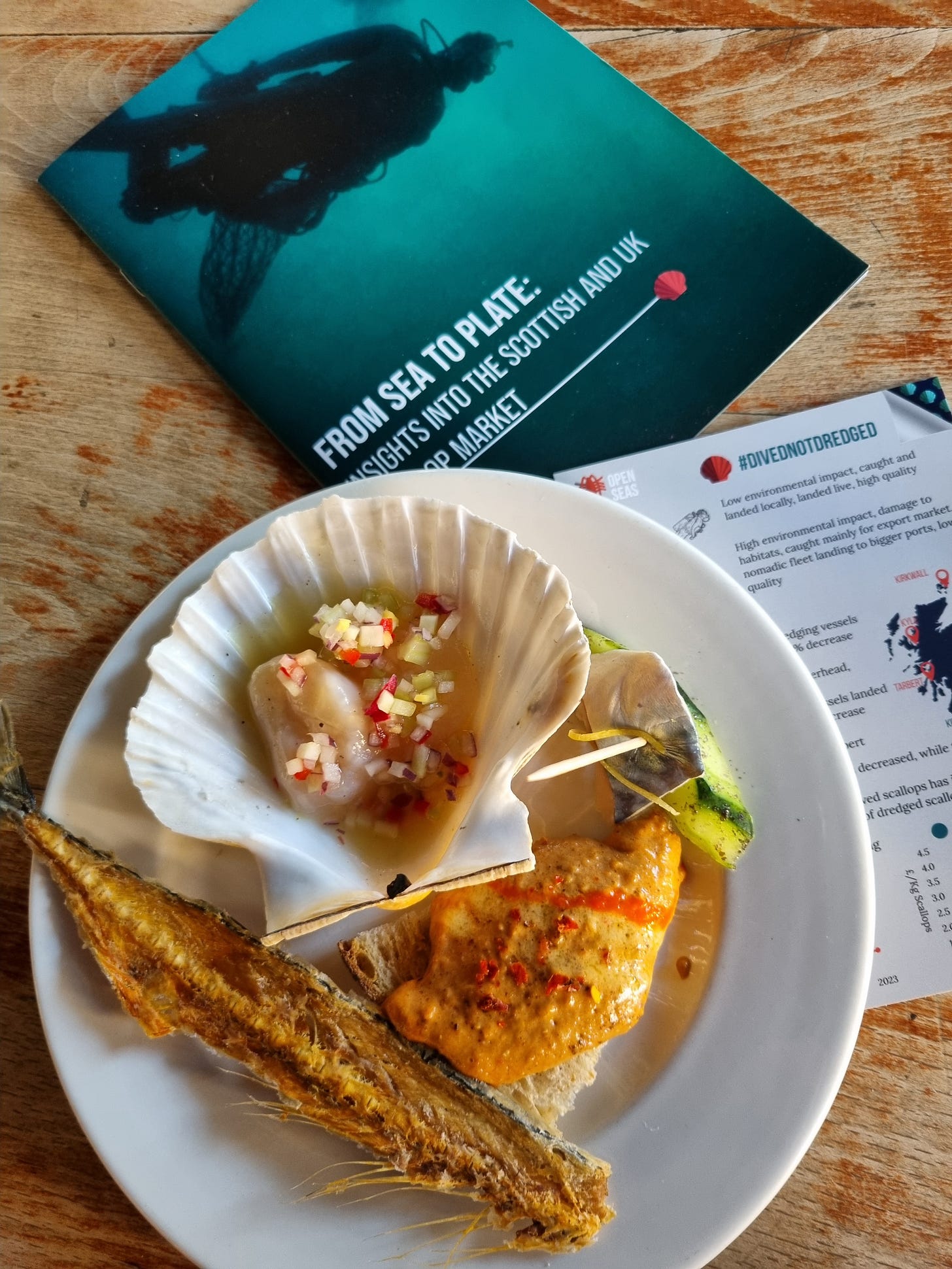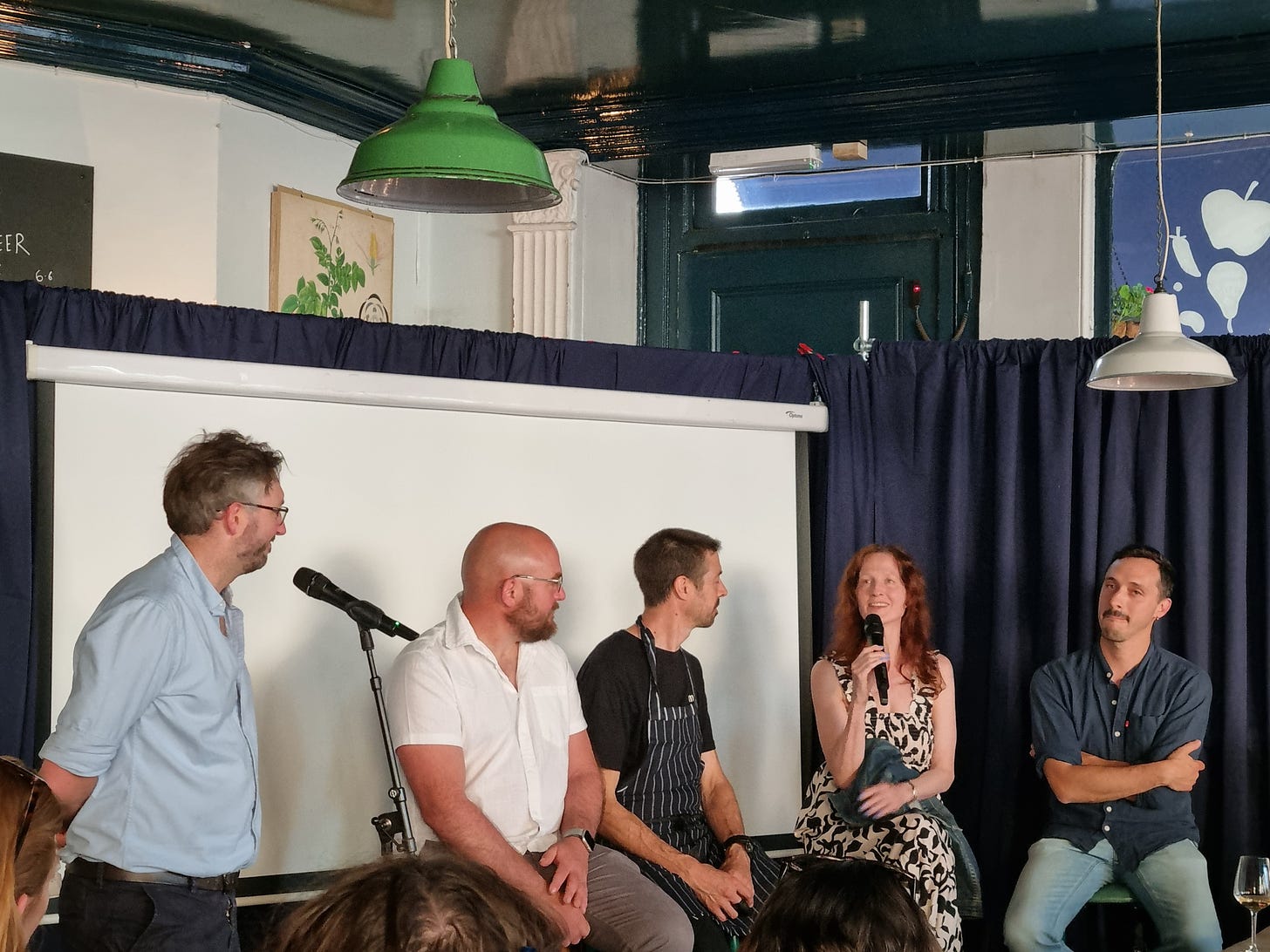Hand dived or dredged?
An evening with Dived not Dredged, talking scallops, and why it matters whether you eat them or not.
Thank you for joining me.
if you think that my work is worth paying for and a monthly or yearly subscription isn't possible; you can
Twice in two days Pam Brunton's voice from Green Michelin Star Inver restaurant has been in the room. Last Tuesday evening at The Duke Organic in Islington she was the eloquent note of reason featured in the documentary, The Orkney Dive made for marine sustainability charity Open Seas. She spoke with passion about the people who take to the cold waters around Orkney to dive for scallops, making it clear that hand dived scallops are a luxury.
‘‘restaurants need to be held accountable. If they buy dredged scallops, there will continue to be scallop dredgers.’’
‘‘Dredgers take the foundation of what life thrives on. We don't notice what goes on under the sea.’’
As a former student of Professor Tim Lang whilst studying for her MSc in Food Policy at City University, she managed to lure him to the event.
He asked thoughtful questions; how do you win over the dredgers. Who are the enemy.



A diver will pick scallops off the seabed, choosing which they want to gather. The shellfish will remain live, intact and kept with care. A dredger, in contrast will literally hoover up the seabed, taking and destroying everything in its path, which results in a huge amount of waste. The resulting scallop shells may be broken, damaged, stressed. That’s what you get in every bag of dredged scallops.
Pam says in the film;
‘‘you wouldn’t put up with this on land. It’s like harvesting chickens, breaking the legs of some and leaving them behind…Out of sight, out of mind.’’
More than 50% of scallops landed in Orkney are hand dived compared to about 4% across Scottish waters, as Pam notes; ‘‘in Orkney we dive, in Shetland they dredge.’’
Ocean with David Attenborough includes graphic previously unseen footage of scallop dredging, a method of fishing which remains widespread in the UK, and is permitted in over 90% of Scotland’s inshore waters. The fishing method drags heavy gear across the seabed, destroying marine habitats and undermining coastal recovery.
Open Seas brought together a panel including @thedukeorganic chef Peter Weeden and Orkney diver Nick Nourse who called for radical improvements in seafood transparency, ocean protection from destructive scallop dredging and support for low-impact fishing like hand-diving.
Nick feels that the number one enemy is ignorance. Not understanding the damage that dredgers do. He, like many others would like an inshore limit back.1
Peter urged colleagues across the hospitality sector to prioritise hand-dived scallops, caught without damaging the seabed, over dredged alternatives.
‘‘Food isn’t cheap. It shouldn’t be cheap.’’
The scallops we ate, all the way from Orkney were a sweet, fresh and delicious treat.
Open Seas are campaigning to remove dredged scallops from restaurant menus. They suggest that customers ask for the catch method when ordering seafood. How many of you would feel comfortable doing so?
Most of my friends think that I’m overly fussy in restaurants. Even my sustainably minded pals tell me that I ask more questions than they do, and the majority of people I know get embarrassed, and wouldn’t feel comfortable asking questions regarding provenance, welfare, or where the ingredients come from.
I would argue that more people need to be asking these questions. I don’t want to be the lone voice at the restaurant table wilderness annoying the waiter because they haven’t got a clue, and have to go to the kitchen to find out. The more people that ask, the more likely it is that chefs and restaurateurs get the message that change is needed. Yes it’s not easy; ingredients are expensive but I’d rather eat a lentil salad than a dish of dredged scallops because dredging is the most environmentally damaging form of fishing.
In a restaurant you may come across the words ‘hand dived’ on a menu. You will never see the word ‘dredged’. Because, as with caged chicken or farmed salmon, the only stories we get fed are the good ones, the happy ones.
The next evening, Pam was shortlisted for her first book Between Two Waters at
awards. She really is a voice to watch out for.
Open Seas say; It is your right to know more about your food. Hand-dived scallops are more expensive, because the seabed hasn’t paid for your bill. When you buy or order at a restaurant, avoid dredged scallops. Have a look at Disco Scallops. Choose hand dived scallops as an occasional, and very delicious treat.
The ‘three-mile limit’ is a fisheries regulation which was in place for around 100 years between 1886 and 19841 . It was introduced in response to fishermen’s concerns about the emergence of steam-powered bottom trawling in the 1850s, and its negative impacts on the marine environment. Bottom trawling uses a weighted net, sinks it to the seafloor, holds it open somehow (initially with a big beam held between either end of the net) and tows across the seafloor collecting fish in its path. More info here on the campaign to bring back the inshore limit









Lovely piece Cheryl, what an eye opening evening that must have been. You must come to Cookery School at Little Portland St soon :)